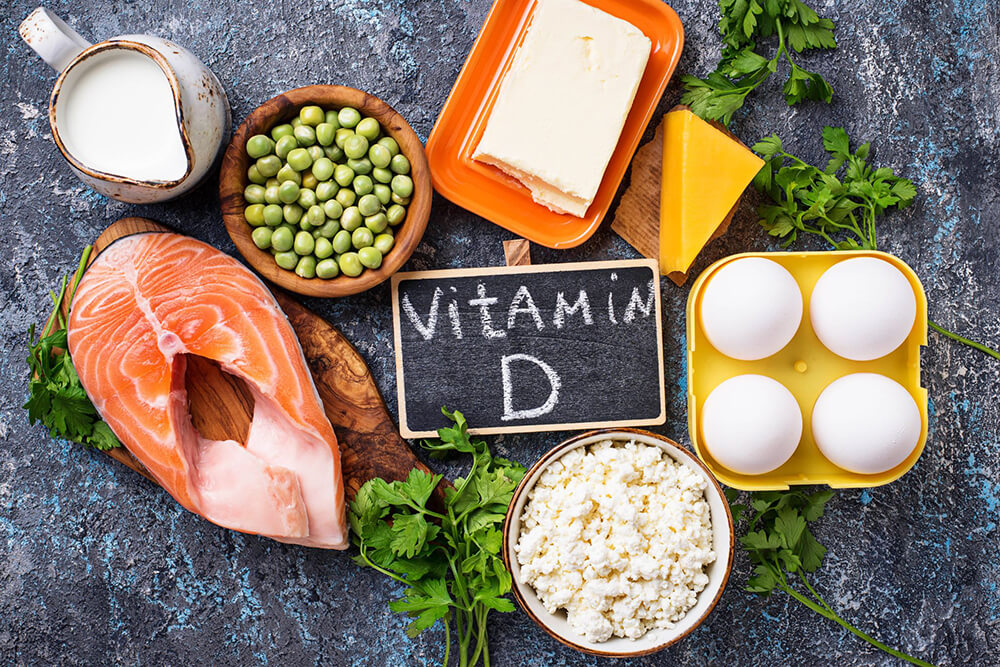How Does Vitamin D Deficiency in Children Affect Childhood Obesity?

Vitamin D is a fat-soluble vitamin that’s essential for continued good health, with its primary function regulating the absorption of calcium and phosphorus for bone and general health. Obesity in children is reaching epidemic proportions, and being so crucial for children’s health, how does Vitamin D affect childhood obesity? Is there a link between the two?
This article explores the relationship between Vitamin D and obesity, what effect a deficiency in this vitamin has on children’s health and more.
The link between Vitamin D and obesity
Dr. Dina Peralta-Reich, who is the director of New York Weight Wellness Medicine, said in a Newsweek article that a Vitamin D deficiency is not the likely cause of obesity, yet obesity in children and adolescents can result in lower levels of Vitamin D. This can exacerbate the condition and lead to further weight gain. While there is a definitive link between the two, it’s still inconclusive whether it’s a causative relationship or not.
Sedentary lifestyles are one of the major causes of childhood obesity and lower levels of Vitamin D. Often, this lifestyle results in fewer outdoor activities and, therefore, less sun exposure, contributing to a deficiency in Vitamin D production.
Another reason why overweight children might be more prone to a deficiency in this vitamin is this. Fatty tissue stores Vitamin D. Therefore, the theory is that children carrying excess weight require higher doses of Vitamin D to maintain sufficient blood levels, as compared to people with a lower BMI (body mass index). Experts suggest that overweight children need 1.5 times more Vitamin D than children in the normal weight range. Children who are obese may require up to three times as much.
There has also been the suggestion that a lack of Vitamin D leads to weight gain, and some studies appear to support this. In one such study referenced by Healthline, a group of women received 1,000 IU (25 mcg) of vitamin D, while a second group received a placebo. The women in the Vitamin D group lost an average of 2.7kg of body fat after twelve weeks, while those in the placebo group lost around half a kilogram. Those on Vitamin D also gained an average of 1.4kg of lean muscle.
Vitamin D deficiency in children and its implications
A lack of this essential vitamin worsens the effects of obesity on general health in children, as the following sections highlight.
Imbalanced hormones & insulin resistance
Vitamin D deficiency in children may alter certain appetite regulating hormones. For example, an imbalance between leptin and ghrelin can result in an increase in appetite, culminating in a child regularly overeating and gaining weight.
There is a link between insulin resistance and a lack of Vitamin D. When this occurs, the cells become far less responsive to the effects of insulin, resulting in impaired glucose regulation. Increased fat storage is the outcome and potential obesity.
Also, being a fat soluble vitamin, D is more easily absorbed and stored in fat cells. The more fat cells a child’s body has, the more Vitamin D it will store, making the vitamin unavailable for normal distribution throughout the body.
Signs & symptoms of a Vitamin D deficiency
The easiest way to determine if a child is lacking Vitamin D is with a simple blood test. Symptoms of a deficiency are not generally noticeable unless it’s a severe case. They include:
- Rickets
- Bone and muscle pain
- Muscle spasms
- Heart issues
- Dental abnormalities
- Seizures
- Muscle weakness
- Bowed legs
Prevention and management of childhood obesity with Vitamin D
As we’ve covered, calcium absorption and Vitamin D help have significant roles in metabolism. Therefore, adequate amounts of Vitamin D are necessary for managing childhood obesity and for general good health. As around 90% of our Vitamin D comes from the sun, encouraging your child to spend more time outdoors is a positive first step. Combined with regular physical activity, your child will get more than enough Vitamin D, as well as essential exercise.
Parents can help children lose weight or maintain their ideal weight by always encouraging and providing a balanced and nutritious diet. Vitamin D and calcium supplements will also help.
Get the entire family involved in a regular exercise routine, and try to make it fun. Even regular walks around the neighbourhood, in the park or venturing out on a hike are going to burn calories and improve metabolism. Avoid sedentary activities like watching TV or playing video games as much as possible.
Book an appointment with Childhood Obesity Prevention
Discover how to control or prevent childhood obesity by booking a personal consultation for your child. To combat this prevalent condition and for expert advice on Vitamin D supplementation, it’s imperative you consult paediatricians or nutritionists for personalised advice, guidance and planning.
Creating sustainable changes is one of the most effective methods in combating obesity in children and adolescents. Contact us today for further information on our services and learn how Childhood Obesity Prevention can help.
